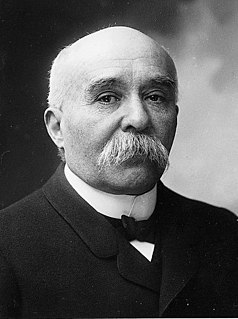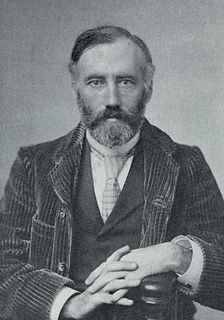A Quote by Samuel Johnson
The morality of an action depends on the motive from which we act. If I fling half a crown to a beggar with intention to break his head and he picks it up and buy victuals with it, the physical effect is good. But with respect to me the action is very wrong.
Related Quotes
In fact we say that an intention is good, that is, right in itself, but that an action does not bear any good in itself but proceeds from a good intention. Whence when the same thing is done by the same man at different times, by the diversity of his intention, however, his action is now said to be good, now bad.
A good Judoka never anticipates his action in a match, but his mind is as clever as a polished mirror which enables him to foresee precisely anything to happen and he displays freedom of his physique to cope with any change. Such mental state and physical action are called sei or tranquility and do or action, sometimes they are called ju and go or tenderness and sturdiness, in and yo or negative and positive, etc.
It is not sufficient to pray diligently for guidance, but this prayer must be followed by meditation as to the best methods of action and then action itself... because prayers can only be answered through action and if someone's action is wrong, God can use that method of showing the pathway which is right.
There are two angels that attend unseen
Each one of us, and in great books record
Our good and evil deeds. He who writes down
The good ones, after every action closes
His volume, and ascends with it to God.
The other keeps his dreadful day-book open
Till sunset, that we may repent; which doing,
The record of the action fades away,
And leaves a line of white across the page.
Now if my act be good, as I believe it,
It cannot be recalled. It is already
Sealed up in heaven, as a good deed accomplished.
The rest is yours.
Every one knows that the heavenly bodies move in certain paths in relation to each other with seeming consistency and regularity which we call [physical] law. ... No one attributes freewill or motive to the material world. Is the conduct of man or the other animals any more subject to whim or choice than the action of the planets? ... We know that man's every act is induced by motives that led or urged him here or there; that the sequence of cause and effect runs through the whole universe, and is nowhere more compelling than with man.
A person is praiseworthy for a right action to the extent that her action manifests, and is rationalized by, good will, that is, concern for the right and the good, not necessarily under the description "right" or "good". A person is blameworthy for a wrong action to the extent that her action manifests, and is rationalized by, ill will - concern for the wrong and bad, also de re - or moral indifference - lack or deficiency of good will.
There is good Karma, there is bad Karma, and as the wheel of life moves on, old Karma is exhausted and again fresh Karma is accumulated... Karma is twofold, hidden and manifest, Karma is the man that is, Karma is his action. True that each action is a cause from which evolves the countless ramifications of effect in time and space... To the worldy man Karma is a stern Nemesis, to the spiritual man Karma unfolds itself in harmony with his highest aspirations.





































